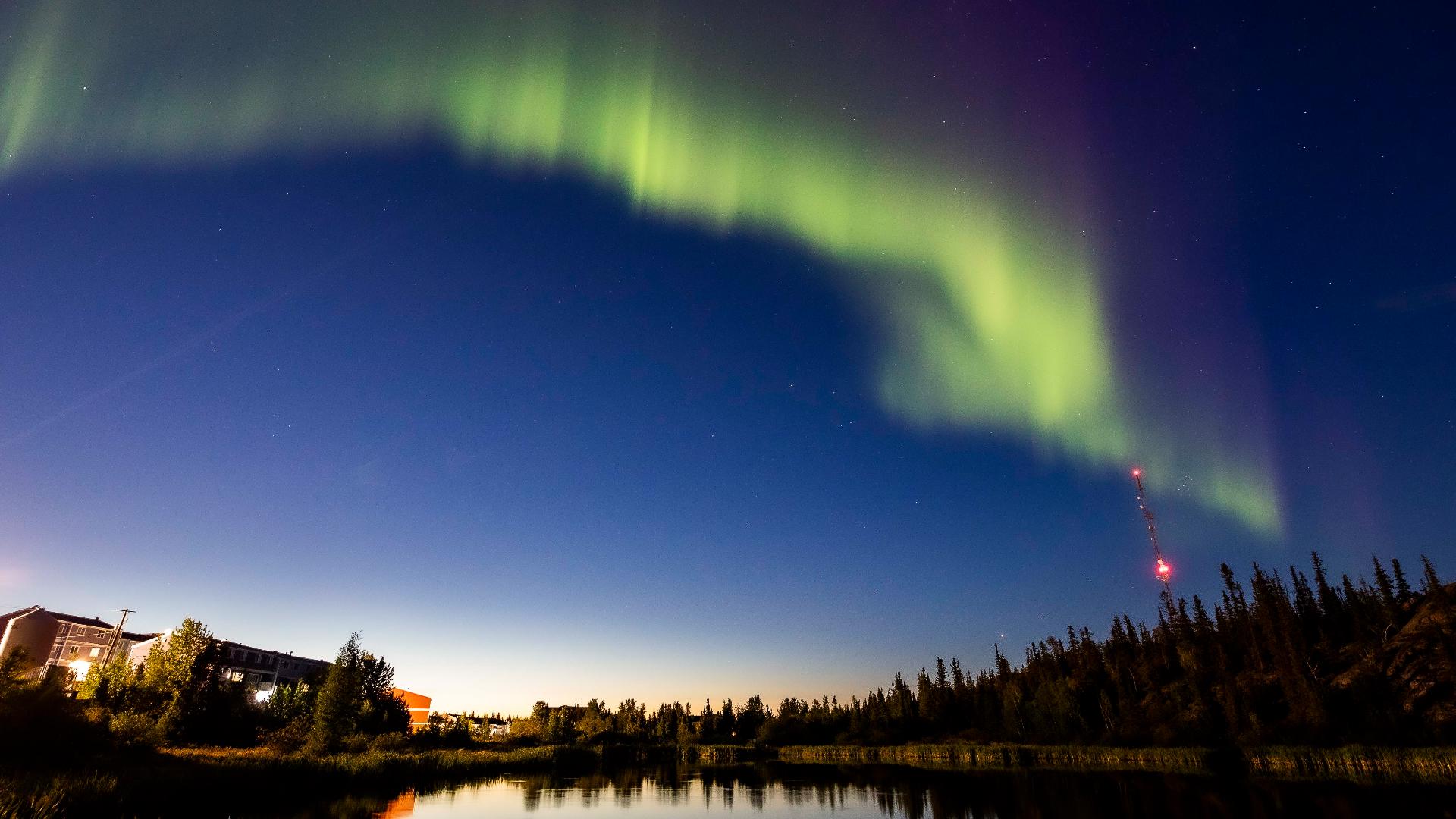WASHINGTON — Solar storms persisting from the weekend may produce faint colorful auroras across the Northern Hemisphere, with little disruption to power and communications, space forecasters said Monday.
The sun has shot out at least five strong solar flares since Saturday containing clouds of high-energy plasma that can interfere with power grids and scramble GPS signals, according to the U.S. National Oceanic and Atmospheric Administration. But no major communication problems have been reported so far, said NOAA spokesperson Erica Grow Cei.
Each eruption can contain billions of tons of solar plasma. As particles hit the Earth they have the potential to generate northern lights, gracing watchers with ethereal curtains of multicolored light usually only seen in the far north.
Unusually strong solar storms in May produced jaw-dropping aurora displays across the Northern Hemisphere. Grow Cei said this event that produced light shows over the weekend will likely be shorter, but may still produce faint auroras as far south in the U.S. as Alabama and Northern California on Monday night.
The sun’s magnetic field is currently at the peak of its 11-year cycle, making storms and aurora displays more frequent.
Earlier in the year, sky-watchers across the U.S. were treated to displays of lights from the auroras created by another spike in the magnetic field. That flare, at the end of May, appeared to be associated with a sunspot that’s 16 times the diameter of Earth, NOAA said. Similar warnings about electronic disruptions were also issued during the May solar storms because of their threat to sensitive electronics.

